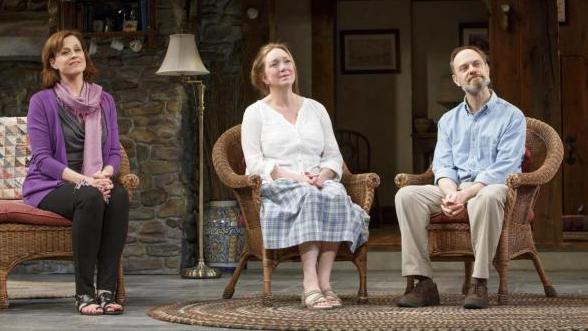In Laura Miller’s quasi-memoir The Magician’s Book: A Skeptic’s Adventures in Narnia, she talks about her intellectual development in the context of the books she read as a child, with a particular emphasis on Narnia. But my attention was caught by a later passage, after she’s read Orwell’s Animal Farm.
I don’t mean to suggest that Animal Farm isn’t moving. Even as an adult, I found the novel terribly sad. I pitied poor Boxer the draft horse, who dies serving a regime he can’t even see has betrayed him. I pitied him so much that I almost wept. But pity always contains a seed of superiority and therefore contempt. We pity those we regard as less than ourselves: animals or simpletons. As maddening as Lear and Hamlet can be, I don’t pity them. I’m too smart to make Boxer’s mistake, but Shakespeare’s tragic heroes err in ways that I can all too uncomfortably imagine myself succumbing to myself (if not in so grand a manner).
It’s a far cry from the lyric in Passion, “How quickly pity leads to love.” Miller doesn’t explain exactly what kind of fearful fellow feeling she experiences when she thinks of Lear and Hamlet, or how its character differs from that of pity.
I think of pity as the recognition of someone else’s pain mixed with sorrow that they are experiencing it. There’s some kind of power dynamic, in that pity presupposes I have the emotional resources to feel someone else’s pain, meaning I can’t be already swamped with my own, but that kind of difference is transient. I may not be able to offer you pity for your jammed finger when I’m doubled over with food poisoning, but your strength in that moment, as you offer it to me, doesn’t mean I am always cast as your inferior.
I was slightly grumpy and scornful about Miller’s take on pity until a few weeks later, when I saw (and did not enjoy) Vanya and Sonia and Masha and Spike, Christopher Durang’s comedy riffing on Chekov. I was complaining about the passive characters to a friend on the phone, who replied, “Well, you have no empathy for people who don’t make choices, Leah.”
While Miller found that her pity carried a whiff of contempt, my contempt completely screened off any hint of pity. Durang must have come close to the aesthetics of Chekov, because during his play, I had the same reaction I did to The Three Sisters and The Seagull: a fierce desire to shake all the characters, hard. And a profound gratitude that they were fictional, because it would be horrible if these people actually existed. (So much for Chekov increasing empathy, per this study).
But Miller and I might both benefit from the same solution. Sometimes, when I’m struggling with empathy, I try to abstract the problem a character or a friend is having. Boxer is specifically having a problem with being unable to recognize betrayal, but, up a few levels of abstraction, I might say that something about the way he is right now is making it hard for him to exist in the world as it is or to avoid causing harm to others. I end up in similar bottlenecks, though my difficulty is never too much trust.
My empathy or Miller’s feeling of equality ultimately doesn’t need to be rooted in sharing a particular flaw, but in sharing the experience of being flawed in any way. There’s no hierarchy of tragic flaws that puts my callousness above Vanya’s placidity or Boxer’s gullibility. Each of us might pray to be delivered from the defect that makes it harder for us to do good and avoid doing harm.
Sometimes, I like to crib from the way one of my friends talks to her infant daughter. When she squalls and cries, sometimes for ridiculous-seeming reasons, my friend murmurs “Yes, it’s hard to be a baby.” Even when a child is crying because, say, “I wouldn’t open the door she was blocking with her foot” there’s something that’s quite hard about wanting the door to open and having no idea, in your heart-felt need and limited understanding of physics, why someone can’t do this simple thing for you.
I may not manage something that obviously silly, but I’m sure I’ve asked for help while simultaneously fending off solutions because I was too upset to recognize them or was afraid of feeling weak. The baby and I are both in a pitiable state, she because she can’t master physics, me because I can’t master pride. There’s enough commonality in the experience of being overwhelmed for there to be empathy.
I’m on day three of a novena to St. Isidore, my saint for the month, and readers are welcome to join in.













